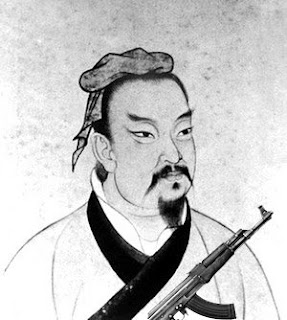
2009 has brought great changes in geopolitics- the ascendance of Barack Obama to the presidency of the United States has already brought such changes as an order to close the United States’ Guantanamo Bay detention camp in Cuba, and the Obama ascendancy has also brought the possibility of a thaw in recently strained relations in the Middle East. Against the backdrop of this topsy-turvy world, international oil companies are even going so far as to consider reconciliation with Venezuela.
Investing in Venezuela, which inherently entails cooperation with Hugo Chavez’ Venezuelan government would seem to be a dicey proposal at best for international oil companies. Recent examples of Mr. Chavez’ disdain for the property rights abound: only two years ago, Mr. Chavez sent international oil companies ExxonMobil and ConocoPhillips packing when they disagreed with his policies. Chavez controls oil rents, the main source of revenues for the country , and has shown already that he isn’t afraid to play hardball with IOCs or with customers such as the United States.
However, it is readily apparent that the one-two combination slumping oil prices and global financial security have put Chavez on the ropes--- without the expertise and investment of international oil companies, Venezuela’s oil industry may have trouble continuing. "There is no international financing in sight for Venezuela," Heliodoro Quintero, Venezuela's former OPEC representative, told the Associated Press recently .
For this reason, dear investors, a reach for the phone to drop your shares in Total or Shell may be premature. As the price of oil goes, so too must the economic policy of Venezuela--- currently Venezuela counts 93% of its export revenues as coming from oil.
Crude oil 1-year future prices, which were almost $150 per barrel last year , have plummeted to around $55 as of this morning, a level at which Venezuela’s extra-heavy crude is less economically viable and development of new frontier oil fields may be uneconomical . Analysts predict that oil prices will stay close to this level for some time, meaning that there may yet be some mid-term play for investors holding shares in IOCs such as Royal Dutch Shell(NYSE: RDS) and Total (NYSE: TOT) who have reached out to Venezuela in its time of need.
A Reuters poll of 32 industry analysts said that oil was expected to average $55 per barrel in 2009 , well below the level that would allow certain types of unconventional oil to be economically feasible. Analysts indicated that decreased demand for oil accompanying the current worldwide economic slowdown was primarily to blame: "Prices will go down further as we hit a deeper economic recession over 2009”, analyst Davide Tabarelli of Italian energy consultancy Nomisma Energia told Reuters in an article dated yesterday. Furthermore, new production coming on-line in Iraq, as well as Angola and Brazil, may contribute to stable prices , as may large on-ship reserves, which are at the highest level in 25 years.
To be sure, oil prices will not stay low forever. "Recovery should start from the beginning of 2010”, said Mr. Tabarelli. The Reuters poll indicated that analysts expected an oil price rally in 2010 to around $72 a barrel, and to rise further in 2011 to $86 per barrel.
For its part, Venezuela and other OPEC member states have also given signs that they plan to cut production further if prices do not rebound. OPEC has already cut its production by 4.2 million barrels per day , but Venezuela’s oil minister and PDVSA President and CEO Rafael Ramirez indicated last week that Venezuela would be willing to participate in another production cut if necessary. Along the same lines, Algerian Energy and Mines Minister Chakib Khelil also predicted recently that OPEC may agree to a further production cut in response to any further drop in prices, which Goldman Sachs analysts recently predicted could slide to as low as $30 per barrel in the first quarter of 2009.
One ray of hope that Chavez may not immediately resume his wicked ways when the oil prices climb once again is that Venezuela also requires investment in its refining capacity- Venezuela requires new upgraders to make its extra-heavy crude refineable — and PDVSA is looking for bidders to help build three of the facilities, which would not be completed until 2014 , which might give Chavez pause before he decides to nationalize oil company assets again.
With this thought in mind, it may be acceptable to proceed with caution. Shell knows full well the experience of being shut out of a developing market, having recently endured a messy loss of its Russian gas holdings , and oil companies require new projects to ensure steady revenues. The actions of President Chavez remain unpredictable, and his likely response to a rebound in oil prices down the road remains unclear. Therefore, although it’s safe to keep the stock in Total and Shell for the time being, don’t remove your broker’s number from the speed-dial list, because you may need it soon enough.





